So you’re ready to move beyond your phone camera, or you’re just starting out in photography or video, and wondering what equipment to invest in?
Choosing the best camera for beginners can feel overwhelming, for sure, with all the specs, brands, and options out there. But the good news is that 2025 is a great time to get into photography. Cameras have gotten more affordable, more powerful, and easier to use than ever.
This guide will walk you through what matters, what people are recommending in 2025, and which cameras are our top suggestions if you want the best camera for beginners.
Table of Contents
- What Makes a Camera the “Best Camera for Beginners”
- What Experts Are Saying in 2025
- Our Top Picks: Best Camera for Beginners by Type
- Comparison of Key “Best Camera for Beginners” Picks
- Deep Dive: Some of Our Favorite “Best Camera for Beginners” Picks
- How to Choose Which One’s Right for You
- Common Pros & Cons When Buying a Beginner Camera
- What Cameras to Avoid or Be Cautious Of
- Tips to Get the Most Out of Your First Camera
- Bottom Line: Our Recommendations
- FAQs
What Makes a Camera the “Best Camera for Beginners”
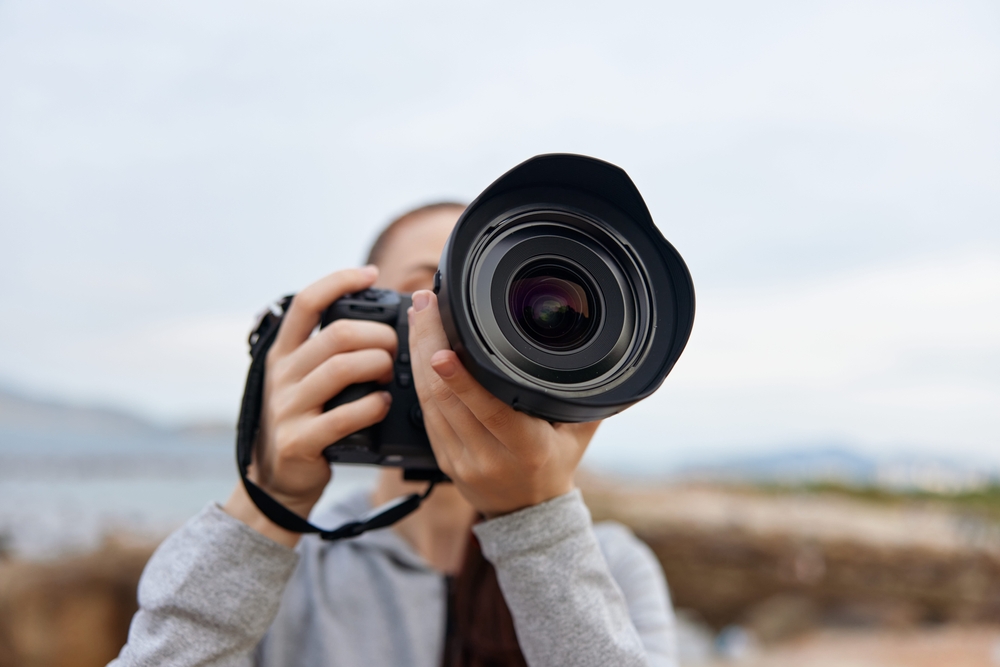
Photo by ShotPrime Studio via Shutterstock
Before jumping into model recommendations, let’s be clear what “best for beginners” really means. Different people want different things, but there are some common traits expert reviewers agree on. If a camera checks most of these boxes, it has a good shot at being the best camera for beginners.
- Ease of use / helpful UX: Guided menus; intuitive controls; clearly labeled buttons/modes; maybe even tutorial features in the camera. A great interface reduces frustration.
- Good autofocus & basic features: Fast and reliable autofocus, especially eye/face detection and subject tracking; decent burst rate; decent video options if you want hybrid photo+video use.
- Size, weight & portability: Beginners often carry around the camera less if it’s bulky. Light, compact cameras are more likely to get used.
- Lens / accessory ecosystem & future flexibility: Even if starting small, having the option to add lenses or accessories gives room for more creative growth.
- Image quality for price: Sensor size, dynamic range, and color rendition matter—but megapixels? Not so much. What matters is how good the shots are in everyday conditions (low light, handheld, etc.).
- Stabilization & video capability: For many beginners, video is part of the game. Built-in stabilization (IBIS) or lens stabilization helps. Video should at least be 4K these days.
- Value / cost: Initial cost + cost for lenses/batteries/etc. A camera that seems cheap but forces you to buy expensive lenses or upgrades can end up costing more.
- Durability & reliability: Batteries, weather sealing (if relevant), and solid build help so beginner mistakes don’t lead to big costs.
What Experts Are Saying in 2025

To know which cameras are repeatedly recommended as the best camera for beginners, I looked at recent buying guides and hands-on reviews. From surveying multiple sources, the cameras that come up again and again as strong picks for beginners are:
- Canon EOS R100 (shown above)
- Olympus / OM System OM-D E-M10 Mark IV
- Nikon Z fc
- Canon EOS Rebel SL3
- Sony ZV-E10
- Canon EOS R10
- Nikon Z50 II
These models are often highlighted because they strike a good balance across the criteria above. They tend to offer reliable autofocus, good image quality, manageable size, and accessible price. Some offer extra flair (style, vlogging capabilities, etc.), so you can pick based on what matters to you.
Our Top Picks: Best Camera for Beginners by Type
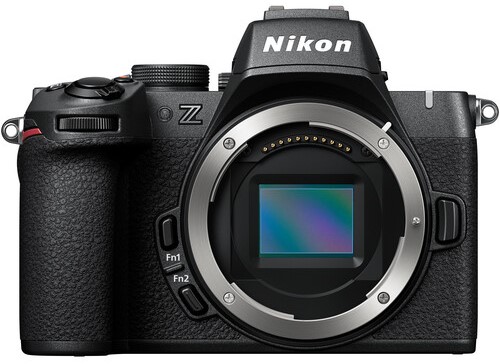
Here are some of our favorite cameras for beginners in 2025. Depending on your priorities—budget, hybrid photo/video, compact size, etc.—some will suit you better than others. These all aim to be among the best cameras for beginners in their niche.
- Canon EOS R100 Kit: A favorite in many “best camera for beginners” lists. It offers a 24.1MP APS-C sensor, Canon’s good autofocus tech, guided menus, and is very beginner-friendly. Excellent if you want a solid, no-nonsense start.
- Nikon Z50 II Mirrorless Camera with 16‑50mm: For those willing to spend a bit more. Offers more advanced specs, better video, and is still fairly compact. Good if you think you’ll grow with your gear.
- Sony ZV‑E10 Mirrorless Camera: Great for content creators and vloggers who want the best camera for beginners that handles video and streaming well. Flip screens, good video modes, and compatibility with decent lens choices.
- Canon EOS R50 Mirrorless Camera: Also highly recommended in 2025. If you want something more video capable (vlogging features, screen articulation) while being beginner-friendly, this is solid.
- Sony A6100 Mirrorless Camera: If you want more flexibility and maybe a step up in performance later, this one gives good value. Reliable autofocus, good lens ecosystem, etc.
- Panasonic Lumix G100D Mirrorless Camera with 12‑32mm Lens: Very compact, friendly interface, including features for creators—makes this a strong candidate for someone wanting the best camera for beginners for video and casual photography.
- Canon EOS R10 Mirrorless Camera: If you have a bit more budget and want performance (burst, subject tracking), the EOS R10 is among the best camera for beginners picks who want serious specs but still beginner-friendly.
- Fujifilm X‑T5 Mirrorless Camera Lens: This is more premium; likely more than what some brand-new beginners need, but if you’re serious and want something you can use for years and grow into, it’s worth considering.
Comparison of Key “Best Camera for Beginners” Picks
Here’s a side-by-side look at specs & features for some of the standout models to help you compare:
| Model | Sensor Type & Size | Key Selling Point(s) | Price Range* | Best For / Trade-Offs |
| Canon EOS R100 | APS-C mirrorless (~24 MP) | Guided menus, very beginner-friendly experience, good photo quality | mid-budget mirrorless range | Best for those who want solid photos with minimal fuss; video is less strong in 4K |
| Olympus OM-D E-M10 Mark IV | Micro Four Thirds | Compact, IBIS, good stabilization, lightweight lenses | affordable mirrorless | Great everyday camera; lower low-light performance vs APS-C / full frame |
| Nikon Z fc | APS-C mirrorless | Stylish retro body, modern internals, capable performance | mid to upper mid-budget | If you care about design & inspiration, this shines; perhaps less rugged than pro gear |
| Sony ZV-E10 | APS-C | Vlog-friendly, video feature set, flip screen etc. | similar to mid-budget mirrorless | Best if video matters; for pure stills might be more than needed |
| Canon EOS R10 | APS-C | Good autofocus, speed, strong “grow into” option | upper budget for beginners | Great value; size heavier; more ambitious photographers will appreciate it |
| Nikon Z50 II | APS-C | Latest generation sensor+AF, good video, strong for both stills/video | premium APS-C pricing | Excellent performance; cost & size a bit more; lens system somewhat more expensive |
*Prices vary by region, kit vs body only, availability, etc.
Deep Dive: Some of Our Favorite “Best Camera for Beginners” Picks
Here’s more detail on a few standout cameras that show up in expert recommendations and on our shortlist.
Canon EOS R100

The Canon EOS R100 is one of the most frequently recommended for beginners in 2025. Many experts call it the “best overall” for newcomers. It gives you a modern APS-C sensor, Canon’s Dual Pixel autofocus (reliable eye/face detection), guided menus, and a simple design. If you want the best camera for beginners that lets you get beautiful stills right away and grow without being overwhelmed, this is a strong choice.
This camera is good if you want solid photo quality, affordability, and a gentle learning curve. There are trade-offs, though: less advanced video (some crop, maybe fewer video-centric features), no IBIS on some models, etc.
Olympus / OM-D E-M10 Mark IV

The E-M10 Mark IV is excellent for a mix of portability and features. It often appears in “best camera for beginners” lists for its compact body, lightweight lenses, in-camera stabilization, and fun user interface. If you want something you can carry all the time, do travel/Instagram shots, and feel encouraged to shoot, this is one of the best camera for beginners picks.
Nikon Z fc

If style, retro design, and user experience matter to you, the Nikon Z fc is a camera that makes you want to shoot. But it’s not just looks—it has modern internals, good lens options, and delivers in quality. A lot of beginners say this is one of the best camera for beginners because it inspires; when you love your gear, you’re more likely to use it.
Sony ZV-E10

For those who want to make videos or do content creation (vlogs, YouTube, TikTok), the Sony ZV-E10 is tough to beat among the best camera for beginners in that category. The flip screen, good autofocus for video, and compatibility with lenses and mics help. It’s often cited in expert guides for “best for content creators / video novices”.
How to Choose Which One’s Right for You

Photo by Sasun Bughdaryan via Shutterstock
Because “best camera for beginners” is subjective, depending on what you want, here are some questions to ask yourself. They’ll help you match your priorities with the right pick from above (or another model).
| Question | Why It Matters |
| Do you mostly shoot stills, or do you also want good video / hybrid use? | Video adds needs: better autofocus, stabilization, articulating screen, maybe better audio support. |
| How important is portability? | If you travel or walk a lot, a lighter camera is more likely to come with you. |
| What’s your budget (body + a lens + accessories)? | Don’t forget extra costs: additional lenses, memory cards, batteries, possibly a tripod, bag. |
| Do you want manual control from Day 1, or just automatic modes until you learn? | Some cameras ease you in (guided menus, auto modes), others assume more control. |
| Will you want to grow, upgrade lenses, add flash, etc.? | Choosing something from a system with good lens options, accessories helps in the long run. |
| How much post-processing / editing are you comfortable with? | RAW shooting gives flexibility but requires more work/software. If you prefer just quick sharable images, a camera with good JPEGs or in-camera editing helps. |
Common Pros & Cons When Buying a Beginner Camera
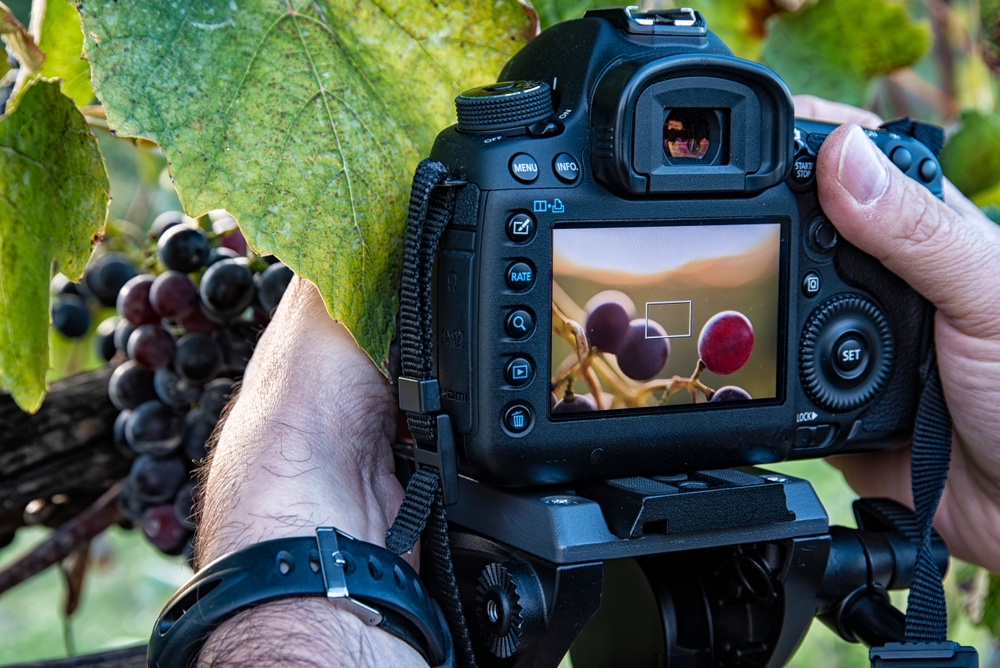
Photo by COLOMBO NICOLA via Shutterstock
To give you a balanced view, here are some things that many reviewers note as strengths or limitations for beginner cameras these days.
| Strengths Many Beginner Cameras Offer in 2025 | Common Limitations / Trade-Offs to Be Aware Of |
| Reliable autofocus including eye/face tracking | Many “beginner” cameras still cut corners on video quality (crop in 4K, limited frame rates, weaker audio) |
| Lighter bodies, smaller lenses, more compact kits | Smaller sensors (e.g. Micro Four Thirds or APS-C) have less low-light performance than full frame; more noise at high ISO |
| Improved image stabilization either in body or lens to reduce blur | Battery life often suffers in smaller mirrorless cameras, especially when using the electronic viewfinder or filming video |
| Good support from manufacturers and third parties (lenses, accessories) | Some features are simplified or omitted to reduce cost: fewer buttons/dials, weaker viewfinders, less durable weather sealing |
| Price competition has pushed down costs; some very capable “beginner” mirrorless cameras are quite affordable now | If you want to upgrade heavily (full-frame lenses, high burst rate, professional video), you may outgrow some beginner models faster |
What Cameras to Avoid or Be Cautious Of
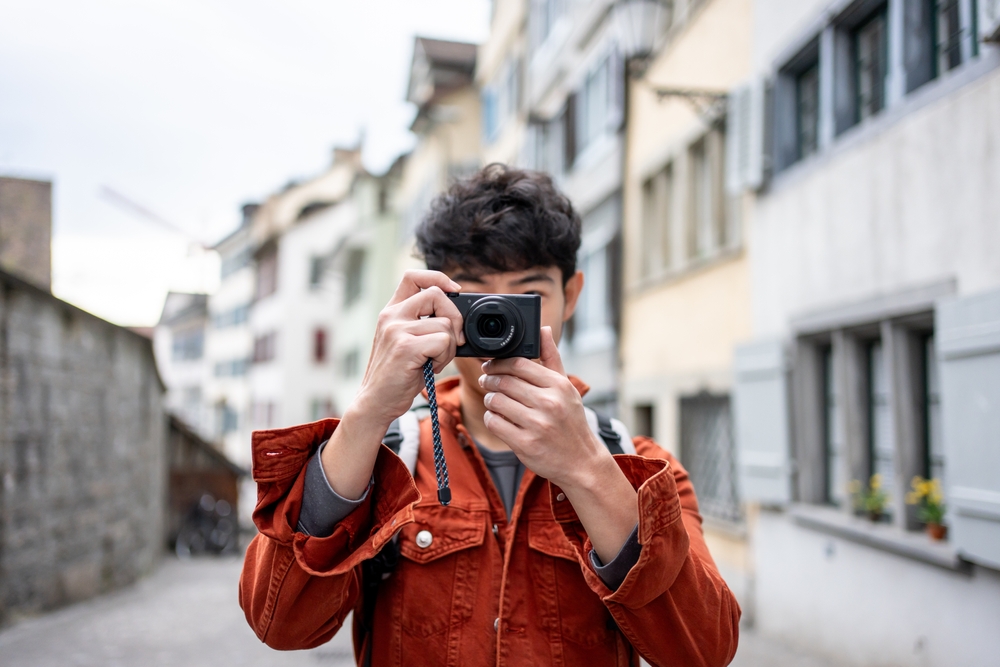
Photo by Hananeko_Studio via Shutterstock
Firstly, avoid very cheap point-and-shoots. They have tiny sensors that make low-light shooting virtually impossible. Overly specialized cameras should be avoided as well, especially if your interests are broad. For example, a camera made primarily for video may lack robustness in stills, or vice versa.
Investing in full-frame cameras from high-end lines can be great, but often demanding in both cost (lenses), size/weight, and complexity. Unless you’re committed, they may cost you more stress than imaging gain in the early days. Likewise, avoid beginner kits with an underpowered battery and little accessory support. Some beginner kits skimp on battery life or build; verify how many shots per charge, how many spare batteries cost, availability of lenses, etc.
Tips to Get the Most Out of Your First Camera
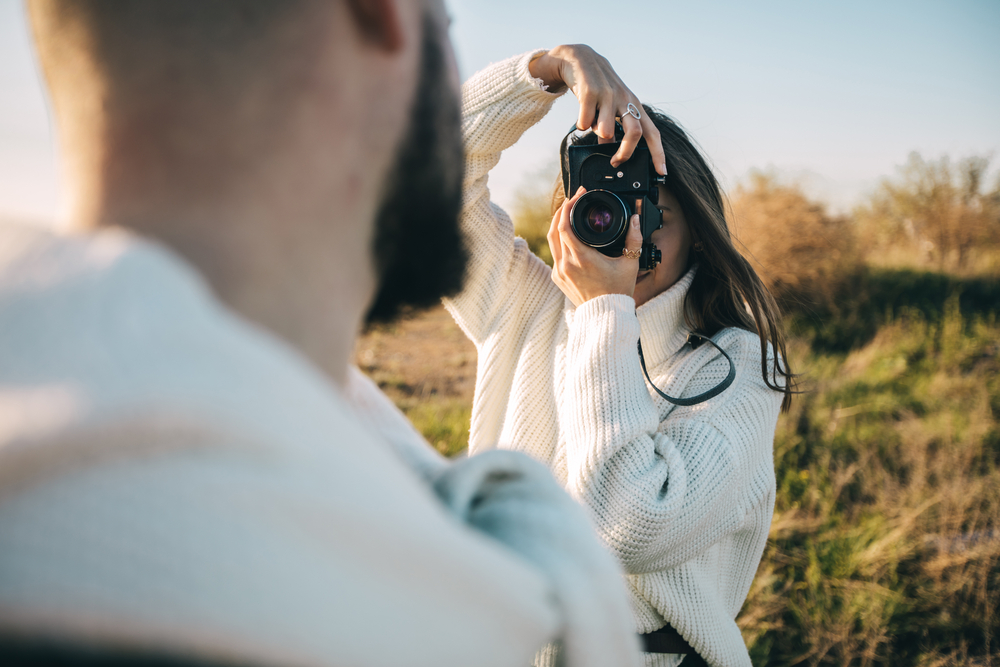
Photo by makarOFFoto via Shutterstock
Even the best camera for beginners won’t be helpful if you don’t use it or don’t build good habits. Here are tips to help you maximize what you’ve got.
- Shoot often (in auto first) and then learn semi-manual and manual modes. Get comfortable with framing, composition, and lighting, then gradually experiment with aperture, shutter speed, and ISO.
- Learn basic exposure and composition. Understanding exposure triangle (aperture, shutter speed, and ISO), rule of thirds, leading lines, etc.—these matter more than having the most advanced camera.
- Use RAW + JPEG if possible. RAW gives you flexibility later in editing; JPEG is simpler if you want quick sharing. Many beginner cameras offer both.
- Take good accessories with you. A spare battery, a decent memory card, and maybe a small tripod or stabilizer are ideal for an accessory kit. These often make the difference when shooting outside or for video.
- Practice with limitations. If your camera lacks IBIS or video has a crop, adjust your shooting style. Use what you have, and learn to get the best from it.
- Don’t get stuck chasing specs. A camera model that looks “future-proof” may be tempting, but often has features you won’t use as a beginner. It’s better to get something you’ll use now.
- Review your shots and learn. Look at what’s working and not working. Blur? Poor exposure? Bad composition? Feedback (even just from friends) helps.
- Upgrading later is fine. Choosing a camera system with lens options or third-party accessories helps you grow, but remember, many great shots come from skill, not just gear.
Bottom Line: Our Recommendations

If I had to pick one camera that hits the sweet spot today as the best camera for beginners, I’d lean toward the Canon EOS R100. It has excellent image quality, a friendly user interface, and enough room to grow.
If your priorities differ (video, style, portability, budget), here are quick alternative best picks:
- Want compact & travel-light? Olympus OM-D E-M10 Mark IV
- Want style & inspiration? Nikon Z fc
- Want video/hybrids or vlogging? Sony ZV-E10 or Canon EOS R50
- Want performance & burst / speed? Canon EOS R10
The great thing about entering photography in 2025 is that you don’t need to spend a fortune or wrestle with steep learning curves to get excellent results. The best camera for beginners is one you’ll use, enjoy, learn from—and that doesn’t get in the way of your creativity.
If I were you, I’d pick one of the repeat-recommended models above, think about what style you shoot, and dig in. The most important thing? Keep shooting. Because even with the best camera for beginners, the person behind the lens is what truly makes the magic.
Happy shooting!
FAQs
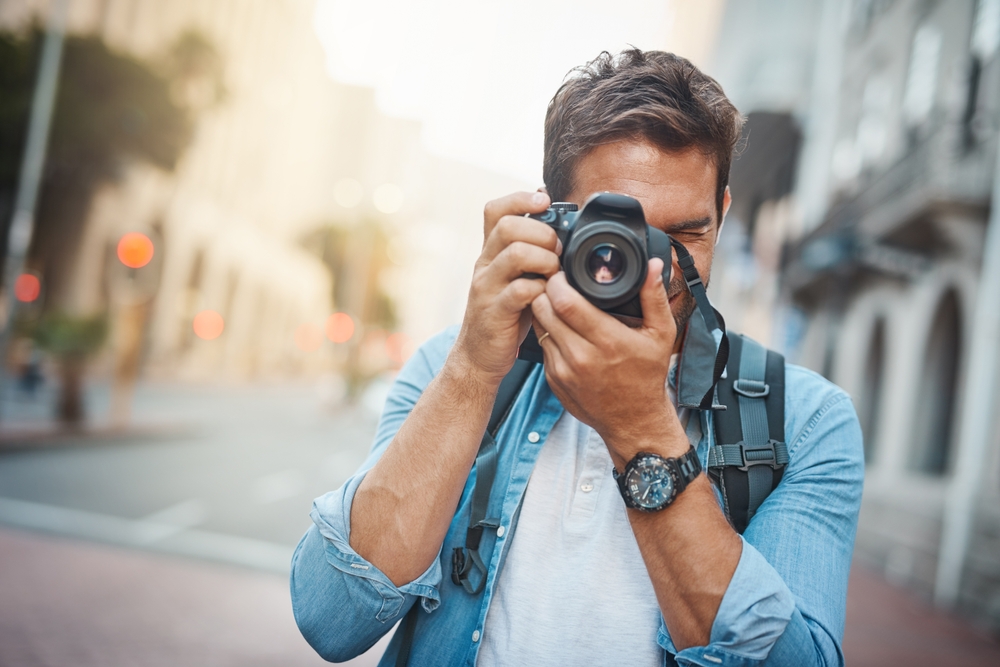
Photo by PeopleImages via Shutterstock
Do I need a full-frame camera as a beginner?
Not necessarily. Full-frame sensors offer advantages (low light, shallow depth of field) but cost more (lenses, size, weight). Many of the best camera for beginners picks are APS-C or Micro Four Thirds and still deliver excellent results. Only go full-frame if you know you’ll need its advantages.
Is mirrorless better than DSLR for beginners?
Mirrorless cameras are lighter, often faster in autofocus, and more modern. DSLRs still have some advantages like battery life, optical viewfinders, and large used lens selection. But the trend for best camera for beginners is strongly toward mirrorless.
How much should I expect to spend?
Expect to spend more than just the “camera body” price if you want a lens, a spare battery, memory cards, etc. A good budget beginner camera kit might run from a few hundred dollars to $800-$1000; premium beginner or “grow-into” models can go higher. But many expert guides judge value instead of just sticker price.
Should I buy used / refurbished?
Yes—if from reputable sources. Many beginner photographers find excellent deals on slightly older models. Just check shutter count, condition, warranty, etc. Buying used is a solid way to get a higher-tier camera while keeping costs down.
Just so you know, some of the cool stuff we mention comes with affiliate links, meaning we earn a commission if you buy (no extra charge to you!). Plus, we occasionally feature sponsored content, but rest assured, we only shout out products we genuinely stand behind.
Learn More:
- Best Cameras for Landscape Photography in 2025
- Best Portrait Photography Camera: Top 5 Options to Capture Stunning Portraits
Hero photo by starlight384 via Shutterstock

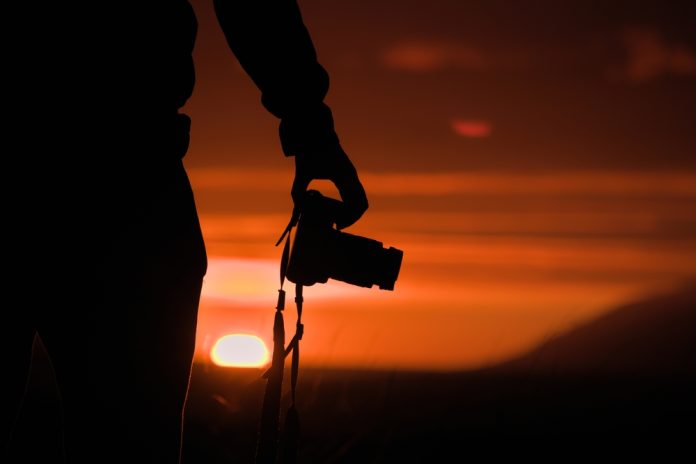
The R100 is a great camera. I’ve taught a lot of students who have that body. That said, I’ve also had a several students who had overheating issues with it, even outside on cool days. That said, Canon was quick to respond when I told them to report their issues.
I bought my first camera last year, a Sony a7 IV. But with work and a new house I barely go to use it. Couple of months ago I started taking some community classes for photography and what I learned is that I needed a more formal training. So, I enrolled in a community college this month and just started Introduction to Professional Photography. Having just found this website today I cannot wait to explore it more in depth.